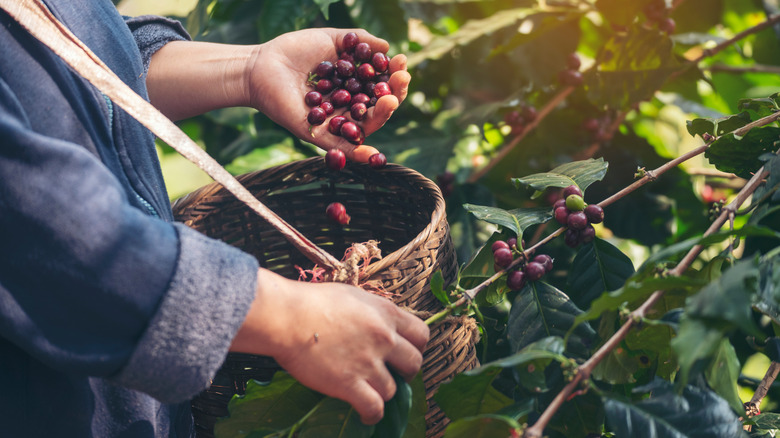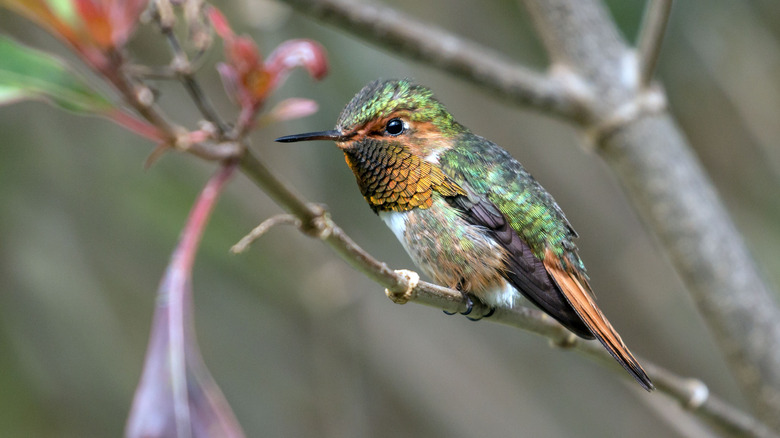New Study Reveals How Much Birds And Bees May Be Helping Coffee Farmers
If you relish your morning cup of coffee, it might be time to take a moment to thank the birds and the bees for all the hard work they do. While coffee plants rely on the right soil, water, air, and sunlight conditions in order to thrive (via Specialty Coffee Association), new research shows that the pollination provided by bees and the pest control provided by birds is just as essential to the health of coffee plants.
As reported by the University of Vermont, a study was published earlier this week by a team of researchers from the university and Costa Rica's Centro Agronómico Tropical de Investigación y Enseñanza (CATIE). Entitled "Interacting pest control and pollination services in coffee systems," the study demonstrates that this two-tiered support system results in coffee beans that are both larger and more abundant. Without the work of birds and bees, the study's authors estimate, coffee production yields would go down by about 25%.
The study took place at 30 Costa Rican coffee farms
In order to study the real-world effects of bees and birds on coffee production, the authors of the new study altered conditions at 30 coffee farms, according to a University of Vermont statement. Repelling birds and bees with a combination of nets and smaller lace bags, researchers created four different environments: keeping out just birds; keeping out just bees; keeping out both birds and bees; and an environment with both birds and bees, like that which appears naturally. Doing so, they were able to see the true impact of both creatures on coffee plants, finding that even though the arabica beans studied are self-pollinating, the plants were greatly aided by the presence of bees. Birds were found to help control natural coffee pests such as the coffee berry borer, a small insect Coffee Hunter describes as one of the "most harmful pests" on coffee farms.
As noted above, the presence of both birds and bees on coffee farms helped produce coffee fruit (and therefore beans) that was larger, healthier, and more uniform. "One important reason we measure these contributions is to help protect and conserve the many species that we depend on, and sometimes take for granted," Natalia Aristizábal, a PhD candidate at the University of Vermont, said in the statement. "Birds, bees, and millions of other species support our lives and livelihoods, but face threats like habitat destruction and climate change."

